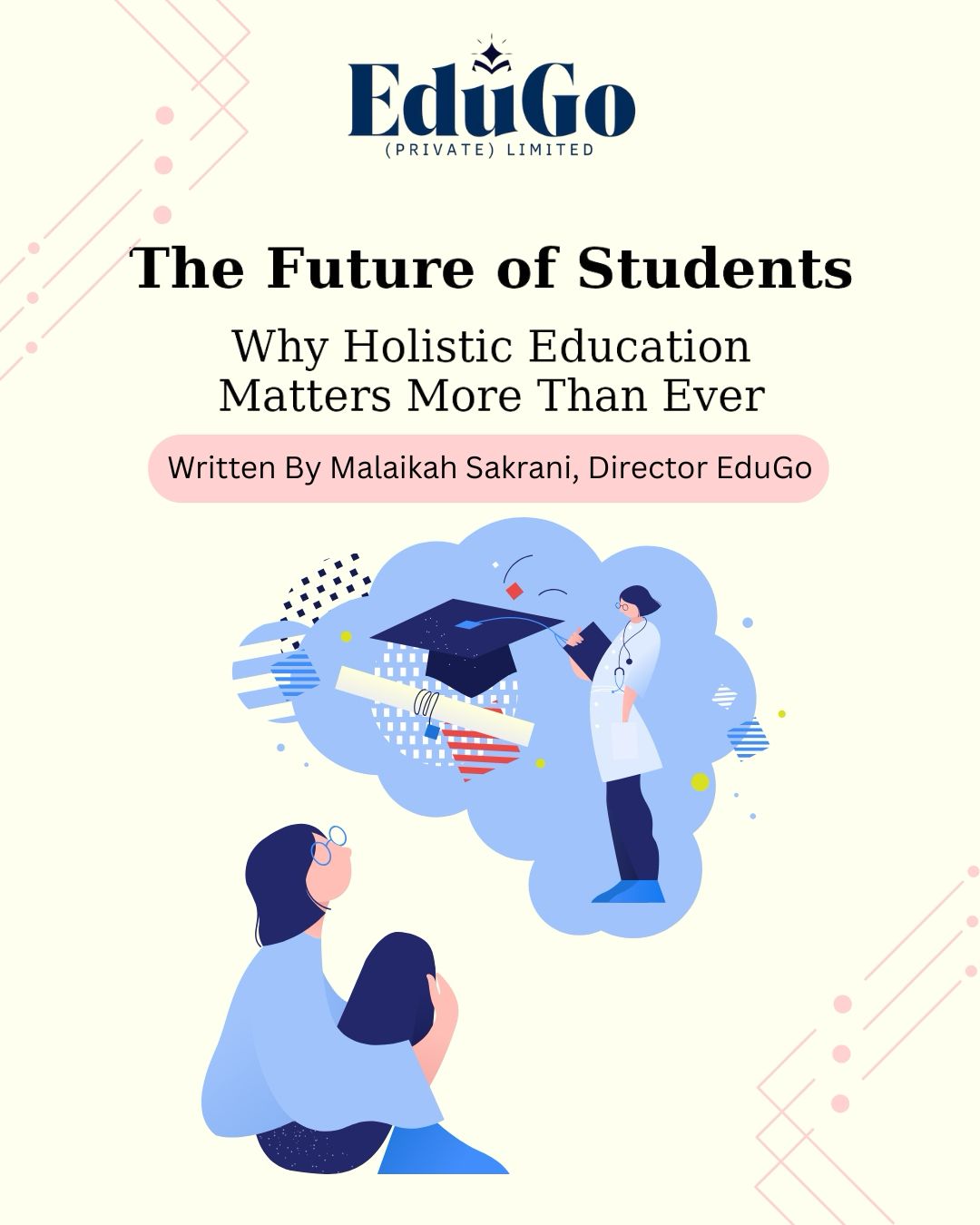
The Future of Students: Why Holistic Education Matters More Than Ever
The Future of Students: Why Holistic Education Matters More Than Ever
The world our students are preparing for looks nothing like the one we, their parents and teachers, grew up in. Artificial intelligence is rewriting industries, global mobility is reshaping opportunities, and skills that once guaranteed success are now barely enough to get noticed. In this shifting landscape, education can no longer be reduced to grades, test scores, or even university acceptances. The future belongs to students nurtured holistically; academically, emotionally, socially, and globally.
When I reflect on my own journey, I often think about the choices I made in my teenage years. I was a national-level swimmer, and the years I spent in the pool gave me discipline, resilience, and an understanding of competition. But in Grade 9, I chose to stop competing so I could focus entirely on my CIEs. I thought strong transcripts would be enough to carry me into a top university. I remained engaged socially and expressive, but by sidelining swimming I unknowingly narrowed my profile. Looking back, that was the worst mistake I ever made
What I didn’t know then was the concept of profile building. Universities abroad and increasingly, Pakistani universities too are not looking at transcripts in isolation. They are evaluating the whole student: leadership, extracurricular involvement, volunteer work, research, creativity, and personal resilience. By relying only on grades, I failed to showcase the swimmer, the leader, and the multidimensional individual I already was.
This became even clearer once I reached McGill University. Surrounded by peers from across the world, I realized how much earlier they had started building their profiles. Many had spent their high school years volunteering, interning, debating, or even launching small ventures. They didn’t just present transcripts; they presented lives filled with curiosity, initiative, and impact. When asked, “What did you do in high school?” their answers carried depth and direction. For too many Pakistani students, the answer still risks being, “I studied for my CAIEs and SAT.”
McGill taught me more than political science and economics. It gave me resilience, walking across campus in freezing Montreal winters. It gave me empathy, through friendships with people from every corner of the world. It gave me adaptability, defending my perspectives in diverse classrooms. In short, it gave me the holistic education I had missed earlier and it’s why I now advocate so strongly for it in Pakistan.
Top 10 Scholarships to Study Abroad for Pakistani Students
Why This Matters for Pakistani Students Today
With O & A Level results just out, many families are now considering next steps. But wherever you apply; whether the Ivy League or a Pakistani university, grades alone are not enough. In today’s competitive world, your profile is more than a ticket to admission. It’s the foundation of your future.
Pakistani passports, in particular, have to fight harder for global job placements. Immigration exists, but the process has become tougher and increasingly merit-based.
Employers and admissions officers alike are asking: “What did you do in your four years of high school?” The strongest answers show a balance of academics, leadership, service, and creativity; not just test preparation.
This is why profile building must begin early. It’s about starting your CV years in advance and being ahead of the curve. By the time you graduate, you shouldn’t just have grades. You should have stories, experiences, and skills that prove you can thrive in a global environment.
The Lesson I Carry Forward
I’ve made it my mission to give students what I myself lacked: structured guidance to build their profiles from as early as the end of Grade 9 summer. Because that’s when I chose academics alone, believing it was enough. I know the sting of realizing too late that you could have shown much more of yourself. And I know the power of encouraging students to pursue internships, research projects, volunteer work, or creative passions; while keeping academics strong.
Looking Ahead
The future of students is not about memorizing more facts. It is about becoming agile, empathetic, and globally aware citizens. As we step into a decade defined by uncertainty and possibility, holistic education will be the difference between those who adapt and those who struggle.
My call to parents, educators, and policymakers is simple: let us stop reducing education to grades and admissions alone. Instead, let us ask whether our students can solve problems, lead with kindness, and adapt to a world in flux.
Because the future of our students is not just about where they go to university, it is about who they become on the way.
Malaika Sakrani is Director EduGo, which is partner for Dawn Education Expo

